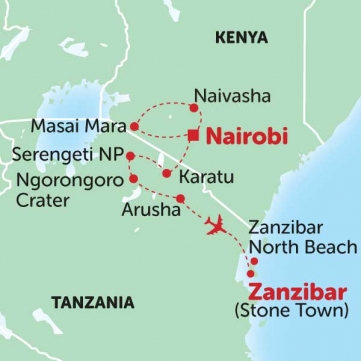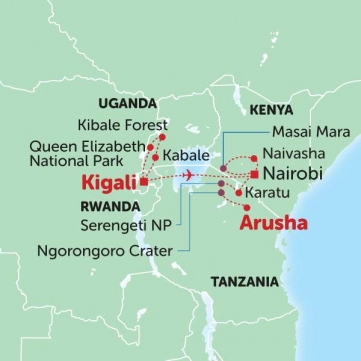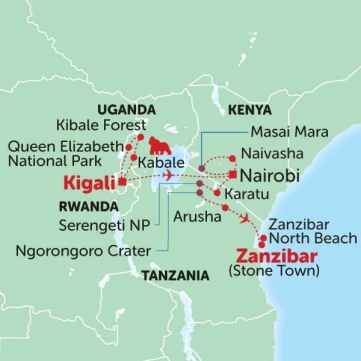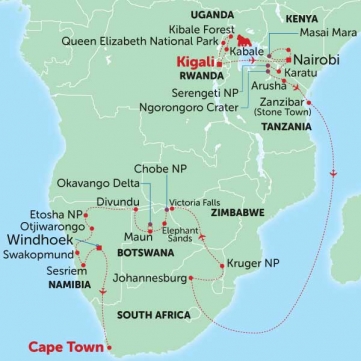Book NOW for $1 £1 €1 • Flexible Payments • No Change Fees • Private Departures Available
- Home >>
- Cost of travel in Kenya
Cost of travel in Kenya
Diverse, rich cultures, vast, stunning landscapes and home to the famous big 5. The land of safaris, bustling cities and beautiful beaches. But that doesn’t mean that a holiday to Kenya has to break the bank. There is no hard and fast rule to budgeting for Kenya, as the costs can vary drastically depending on your activities. A tour to Kenya will cost significantly more if you want to join game drives and safaris, but if you’re only up for relaxing and exploring the cities, towns and beaches, Kenya can be a relatively cheap destination.
So, how much does the average holiday to Kenya cost? If you’re on a tight budget, we suggest to take at least $50 (5055 KES) per day - this is just basic costs and small attractions. If you want to include safaris, the daily costs will likely rise to around $80 - $120 (8088-12132 KES) per day. A mid-range traveller (not including safaris) will need to budget for around $100 - $250 (10110-25275 KES) per day, and if you like to travel in style with more luxuries added in, we suggest you take at least $250 (25275 KES) per day. These daily amounts include accommodation which, if you join a group tour will be included in the overall price of the tour.
The currency in Kenya is the Kenyan Shilling (KES).
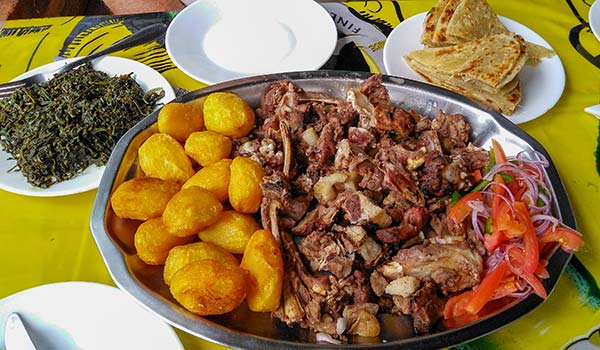
Food & Drink
After spending the bulk of your money on safaris and game drives, you’ll be pleased to know that the food in Kenya can be very cheap indeed. Kenyan street food is delicious and can usually be picked up for anything under $1 (101 KES) per plate. Grilled meat at a street-style eatery will usually cost around $3 - $4 (250-350 KES). A standard lunch at a food court or mid-range restaurant will cost around $2.50-$6 (200-500 KES), and dinner at a nice restaurant will cost anything upwards of $7 (500 KES). A 1-liter bottle of water costs ($0.49-0.59 (50-60 KES), and a 500 ml beer costs around $1.20-1.75 (100-150 KES).
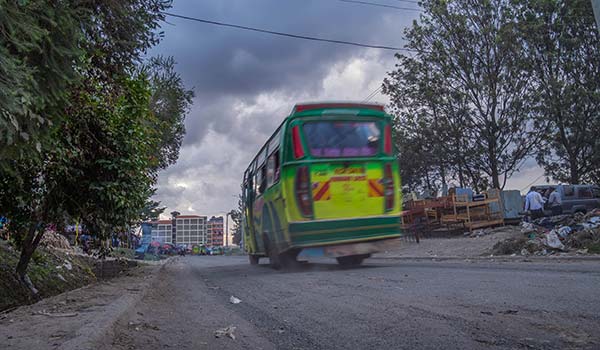
Transport
The cheapest and quickest way to travel around Kenya is by bus, especially within the large cities like Nairobi. A public bus journey averages at around $1.20 (100 KES) per hour. Taxis, on the other hand, tend to be quite expensive. They don’t usually operate with a meter so the price can often be heavily inflated for tourists. For our group tours to Kenya, we use custom-built overland trucks enabling you to travel in style and comfort with ample space, even for a large group. All trucks are equipped with charger points, storage and large sliding windows for taking in the stunning African landscapes.
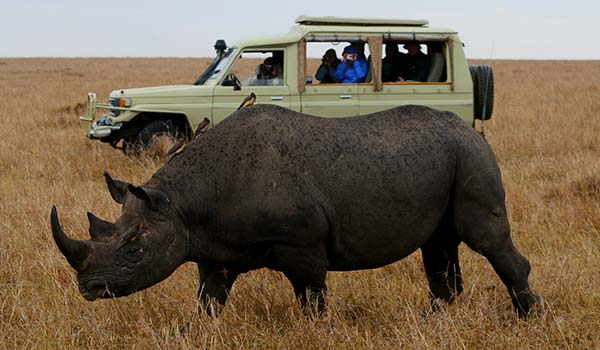
Admission Fees
Admission fees and entry into national parks tends to be the biggest expense of a holiday to Kenya. Entrance into Nairobi National Park costs $40 (4000 KES) per day, entrance to the Maasai Mara Game Reserve costs $60 (6000 KES) per day, but the Nairobi National Museum is only $9.40 (800 KES) to enter. The cost of a safari doesn’t stop at the entrance fee though - you also need to account for the cost of a vehicle, guide and accomodation - taking the price up to around $100 - $200 (10110-20220 KES) per day. A cost-effective way to see all that the Kenyan wildlife has to offer is to join a guided tour which includes a safari.
Tipping & costs in Kenya
Employees in the Kenyan service industry generally have a low wage so depend on their tips to supplement their wages. When you do provide a tip, make sure it is in the local currency of Kenyan Shillings. Remember, adding a few shillings goes a long way.
-
Restaurants
In Kenya, it is standard to add at least a 10% tip to the total bill, but most tourists tend to leave a little more if the meal and service was agreeable. When you leave a tip, it is best to hand it to your waiter or it may not get back to them.
-
Guides
We always advise to offer a tip to your tour guides, no matter whereabouts in the world you are. Their wages predominantly come from tips, so adding 10-20% goes a long way. If the tour wasn’t as good as expected, then, by all means, offer a smaller tip.
-
Transport
Taxi drivers don’t usually expect a tip as the price should be agreed upon before you begin your journey. However, if they were particularly helpful with your luggage, directions or information, feel free to leave a 100 shilling tip.
Top Tip!
Keep a few shilling in a separate wallet so that you are prepared for tipping.
Can you haggle in Kenya?
Kenya has a big haggling culture. In almost every marketplace, kiosk or street-stall, bargaining for an item is expected- especially where handicrafts and souvenirs are sold. You’ll find that most sellers will advise you that their prices are flexible. You can also often negotiate the price of your accommodation if you’re travelling outside of high-season. And if you use the same taxi driver for a prolonged period, you should be able to negotiate that too. Outside of this, most items and services will have a fixed price.
Featured Tours




